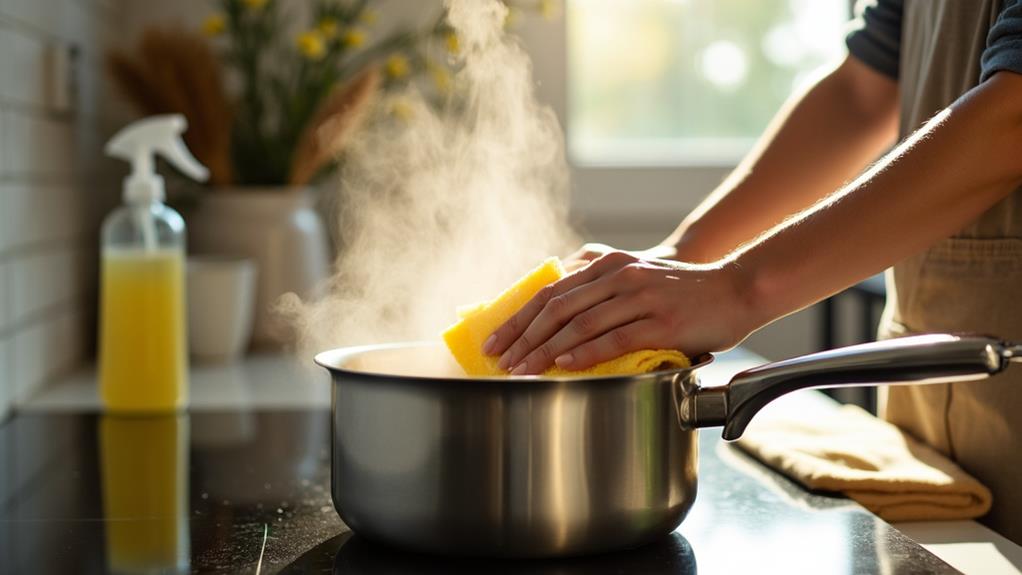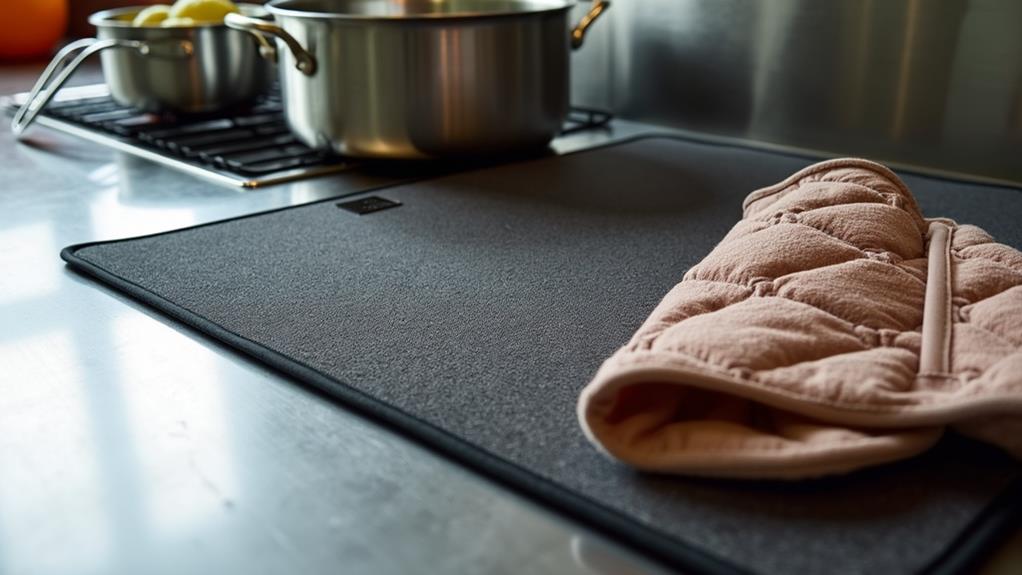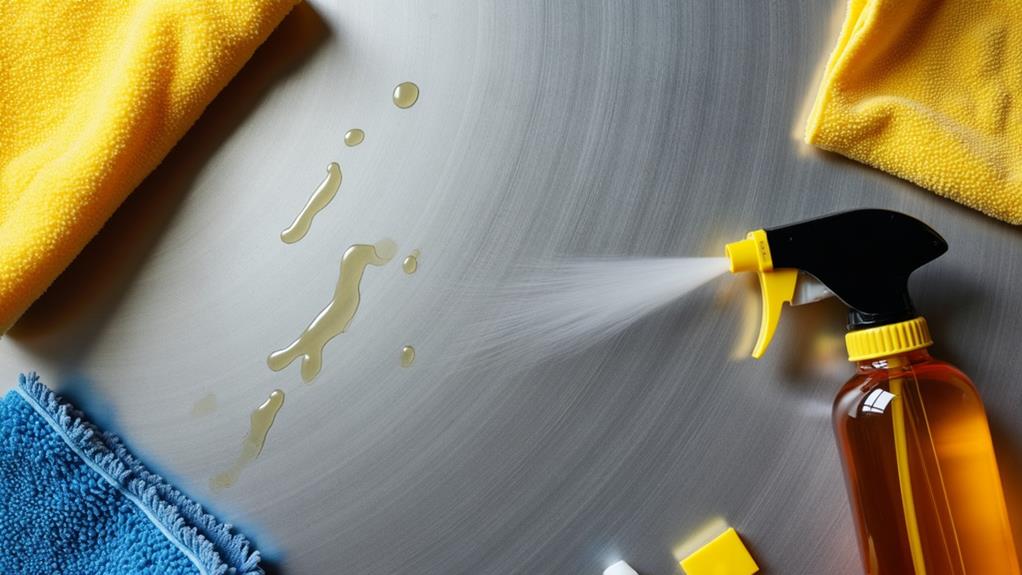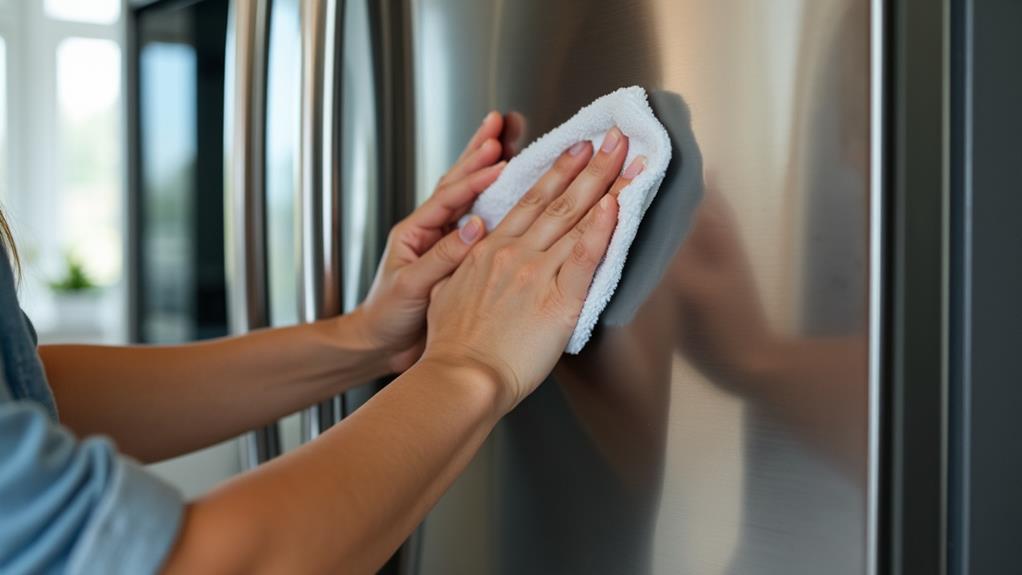Baby Oil Vs. Mineral Oil: Which Is Better for Stainless Steel?
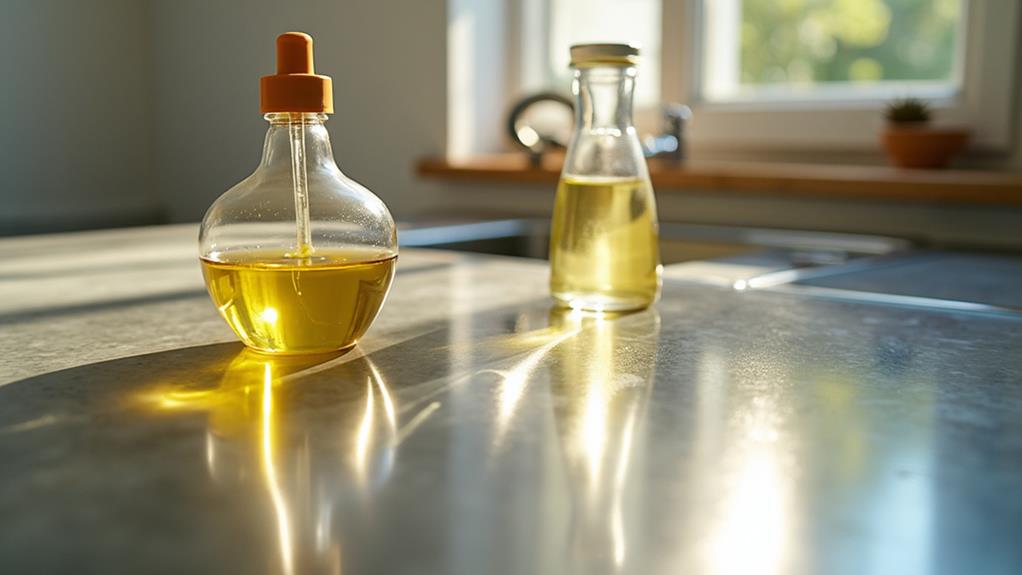
When choosing between baby oil and mineral oil for your stainless steel surfaces, it's important to consider the unique benefits and drawbacks of each. Baby oil, enriched with Vitamin E and offering a pleasant scent, enhances shine and repels fingerprints but requires more frequent reapplication.
Conversely, mineral oil provides a long-lasting protective layer but can accumulate a greasy buildup over time. Which option aligns better with your cleaning routine and preferences?
Let's explore the specifics of each choice and how they affect your stainless steel maintenance strategy.
Comparative Analysis
When comparing baby oil and mineral oil for stainless steel, each offers distinct advantages and drawbacks.
Baby oil, primarily composed of mineral oil, provides a brilliant shine and a thin protective layer on stainless steel surfaces, helping them appear clean and polished. However, baby oil can leave a residue that attracts dust and fingerprints, necessitating more frequent wiping.
Mineral oil, being odorless and stable, is a reliable option for maintaining stainless steel. It enhances surface reflectivity and forms a protective layer. However, mineral oil can build up over time, leading to a filmy appearance that might require more frequent cleaning compared to baby oil.
For home use, baby oil may be more appealing due to its non-toxic properties and additional moisturizing benefits from ingredients like Vitamin E or aloe vera.
Conversely, mineral oil is preferred for its stability and longevity, particularly if a consistent shine is desired on stainless steel surfaces.
Ultimately, the choice depends on individual needs and preferences.
Cleaning Effectiveness
Both baby oil and mineral oil excel at removing fingerprints and water spots from stainless steel surfaces. When you're cleaning stainless steel appliances, these oils not only enhance the shine but also effectively remove grime.
Baby oil often contains additional ingredients like aloe vera or Vitamin E, which can provide a temporary moisturizing effect and a short-term shine. However, this shine may not be long-lasting, necessitating more frequent reapplications.
Mineral oil, in contrast, is odorless and stable, making it ideal for long-term maintenance. It doesn't alter the scent of your kitchen and provides a durable protective layer against future stains, reducing the need for frequent cleaning.
Regular application of either oil is necessary to maintain their effectiveness in preventing fingerprints and maintaining the appearance of your stainless steel appliances.
Whether you choose baby oil or mineral oil, both can keep your stainless steel looking its best by effectively removing water spots and grime.
Application Techniques
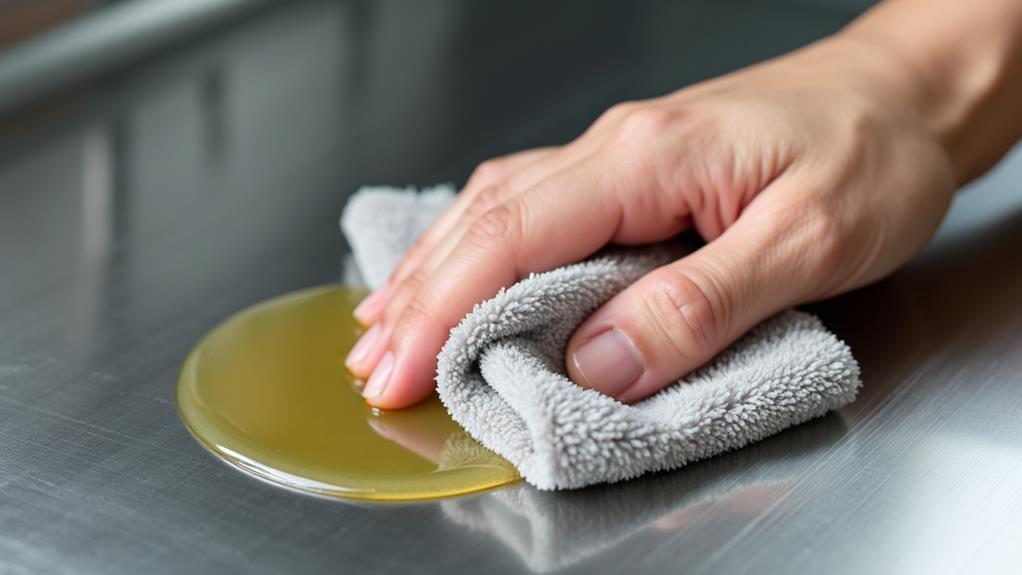
To achieve a sparkling, streak-free finish on stainless steel using baby oil or mineral oil, proper application techniques are essential. Here's a concise guide to help you get the best results:
- Choose a Soft Cloth: Use a soft, lint-free cloth to apply the oil. This prevents scratches and ensures an even distribution across the stainless steel surface.
- Follow the Grain: Apply the oil in the direction of the stainless steel grain to prevent streaks and enhance the polished appearance of your appliances or fixtures.
- Use a Small Amount: Apply a small amount of oil to avoid over-application. A thin layer will provide a shine without leaving a greasy residue.
- Buff the Oil: After application, use a clean, dry cloth to buff the surface. This removes any excess oil and ensures a smooth, glossy finish.
Before starting, test the oil on a small, inconspicuous area to ensure compatibility with your stainless steel.
Long-Term Maintenance
Once you've mastered the proper application techniques, maintaining the shine of your stainless steel surfaces requires regular upkeep. Both baby oil and mineral oil are essential for long-term maintenance. Regular application, ideally every one to two weeks, prevents the buildup of dirt and fingerprints, keeping your appliances pristine.
Baby oil, which contains mineral oil, is excellent for enhancing reflectivity. It requires minimal pressure during application, reducing the risk of damaging the surface and extending the lifespan of the finish. Conversely, mineral oil creates a temporary protective layer but might need more frequent reapplication due to its tendency to attract dust and grime over time.
Establishing a consistent cleaning routine is vital. Start with gentle cleaning solutions like vinegar and water to remove any initial grime. Follow this up with your chosen oil to lock in the shine and prevent stubborn stains from setting in.
Monitoring the appearance of your stainless steel will help you determine when it's time for maintenance, ensuring the surface remains vibrant and free from dullness. Regular upkeep using baby oil or mineral oil not only maintains aesthetics but also prolongs the life of your stainless steel appliances.
User Experiences
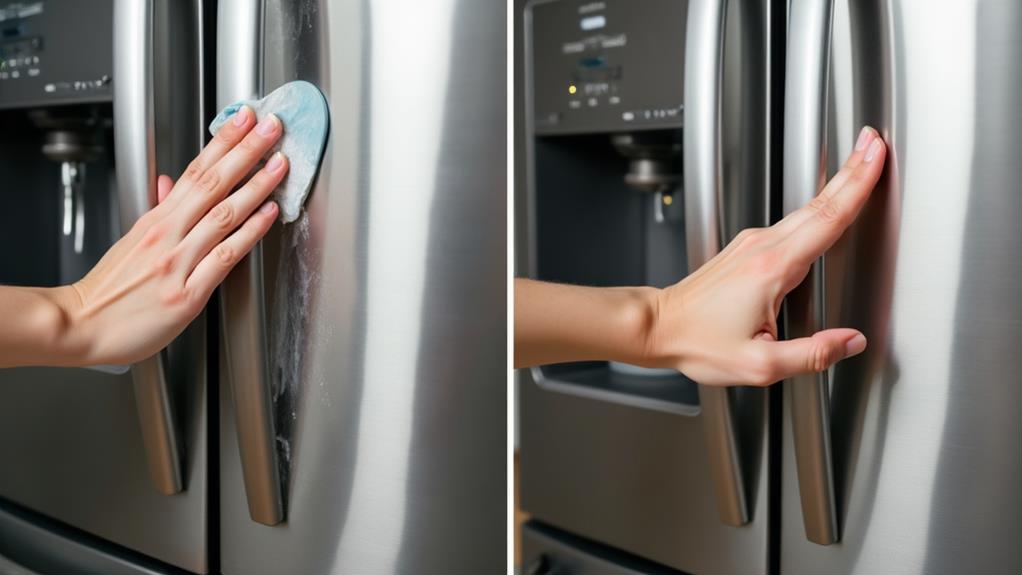
Many users find that baby oil delivers a more appealing shine on stainless steel surfaces compared to mineral oil. They often highlight the pleasant scent and moisturizing benefits that baby oil offers.
Additionally, baby oil effectively repels fingerprints and smudges, keeping stainless steel appliances cleaner for longer. The ease of application and reduced streaking with baby oil is also frequently mentioned as a significant advantage.
However, some people prefer mineral oil for its odorless nature and stability. Be aware, though, that many users have reported that mineral oil can lead to a buildup of residue, causing a greasy appearance. This means you might've to clean your stainless steel surfaces more frequently if you opt for mineral oil.
Here's a quick snapshot of user experiences:
- Shine and Scent: Baby oil provides a more appealing shine and a pleasant scent.
- Fingerprint Repellent: Baby oil is better at repelling fingerprints and smudges.
- Residue Issues: Mineral oil can leave a greasy residue, requiring more frequent cleaning.
- Ease of Application: Baby oil is less prone to streaking, making the cleaning process smoother.
Choosing between baby oil and mineral oil ultimately depends on your specific needs and preferences for maintaining your stainless steel appliances.
Conclusion
When choosing between baby oil and mineral oil for your stainless steel surfaces, consider your priorities. For a high shine and pleasant scent, baby oil is ideal, though it requires more frequent applications. If you prefer a stable, long-lasting protective layer with minimal scent, opt for mineral oil, even though it may accumulate over time. Ultimately, balance shine, scent, and maintenance to suit your needs.

